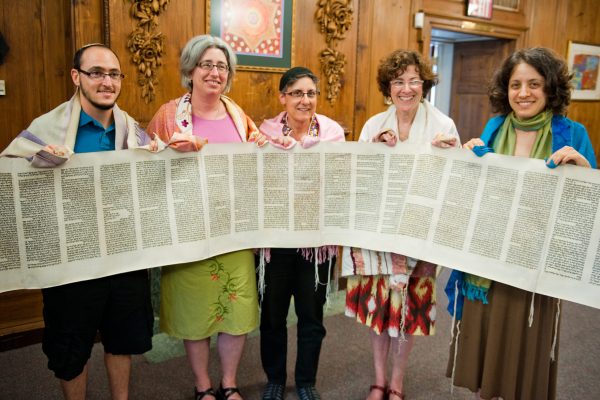Sometimes when I read Torah
I want to throw things.
I want to hurl a glass against a wall and hear it shatter.
I want to slam the scrolls themselves against the table.
Deuteronomy 21in this week’s parsha does this to me.
When I read, If a beautiful woman is taken captive in war, you may take her as your wife. However, you must wait a month before you take her, so that she may weep for her mother and her father…
When I read, If a man has two wives, one beloved and one hated, and they each give him a son, then the man is not at liberty to give the rights of the first-born son to the beloved wife’s son over the hated wife’s son. Rather, he must recognize the first-born, even if he is the son of the hated one…
When I read, If any man take a wife, and go in to her, and hate her
saying, I took this woman, and when I came to her, I found her not to be a virgin—
and there is no evidence of her virginity—
then they shall bring out the girl to the door of her father’s house, and the men of her city shall stone her with stones that she die…
When I read these things, I want to scream like those girls on stage in John Proctor is the Villain,
I want to quit rabbinical school,
I want to renounce it all and be only a Buddhist.
And then I remember Perkei Avot and that thing about turning Torah over and over,
about everything being in it.
And so I do,
I turn it over—I turn it on its head.
I turn it upside down and I shake it until the misogyny comes loose from its pockets and falls clattering to the floor,
until the cruelty gathers there like so much hair under the chair at the salon.
And I start to wonder about those women—
the war booty, the hated wives, the distrusted brides in the middle of that circle of men who crack their skulls with stones—
and I remember that these hated women are my mothers
and that their stories
are mine
and that my job is to tell them.
And that my job is to sweep up all that hair on the floor at the salon
so that they can raise up their heads and look in the mirror
and see themselves remade,
reborn.











